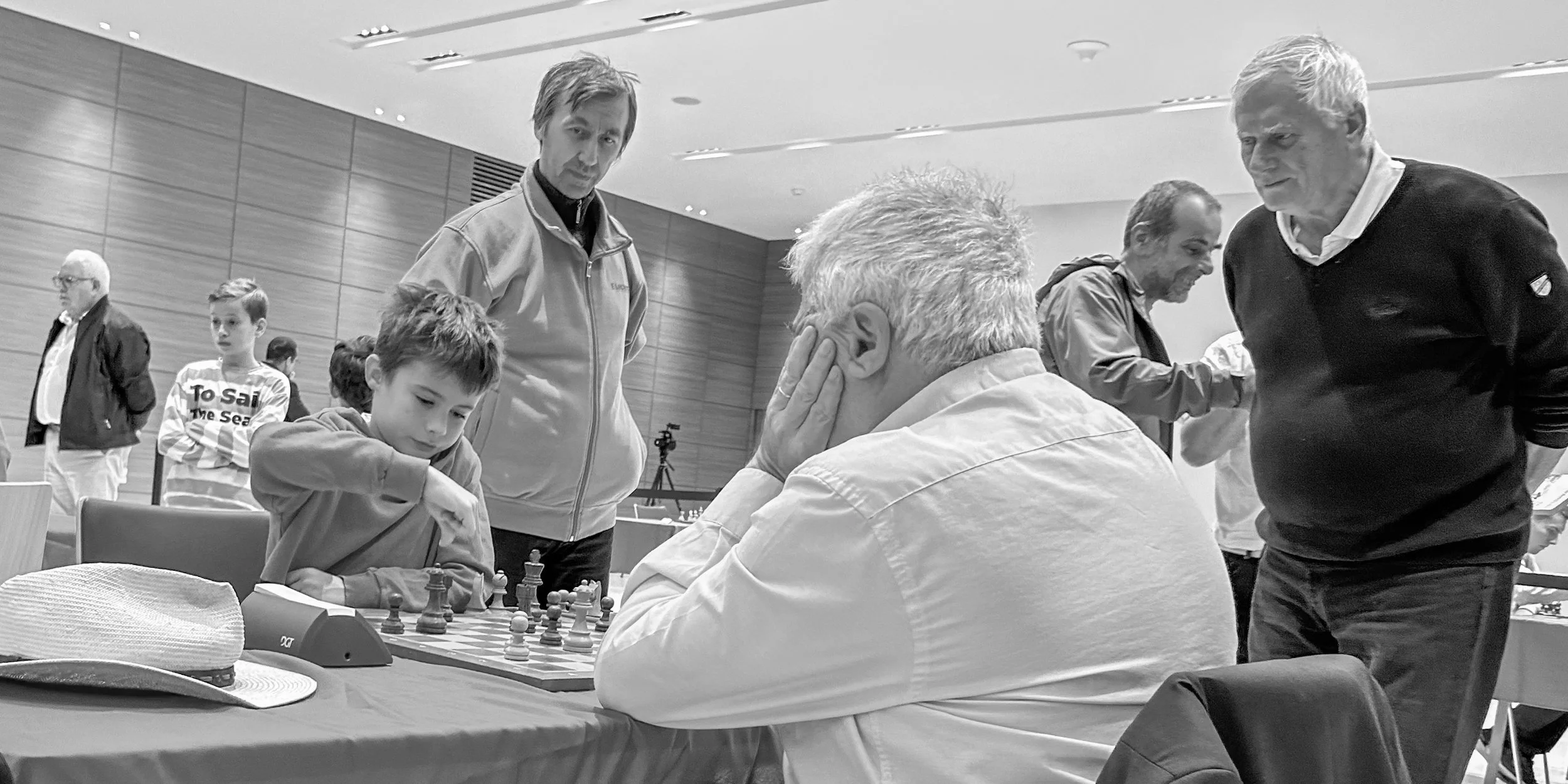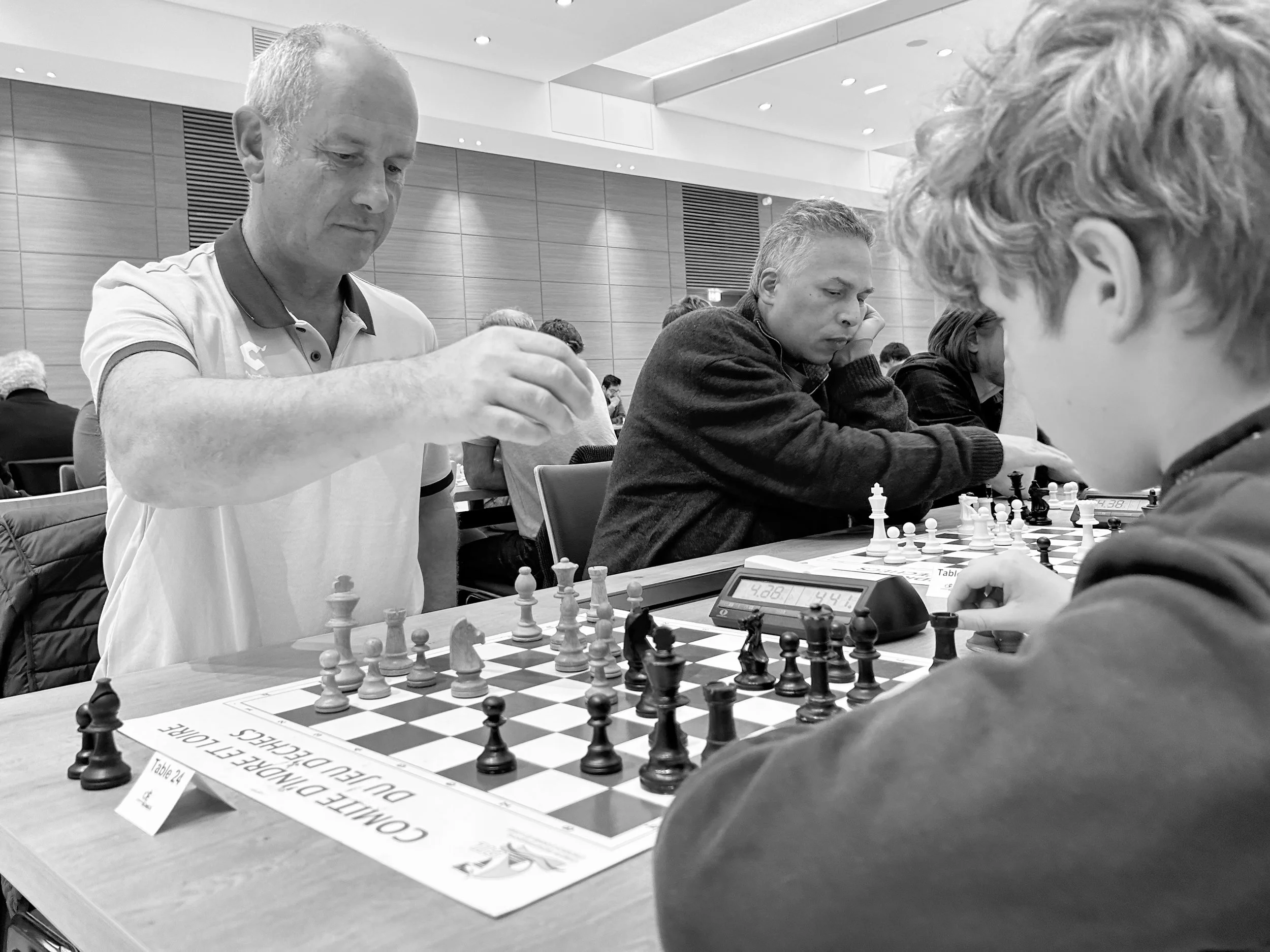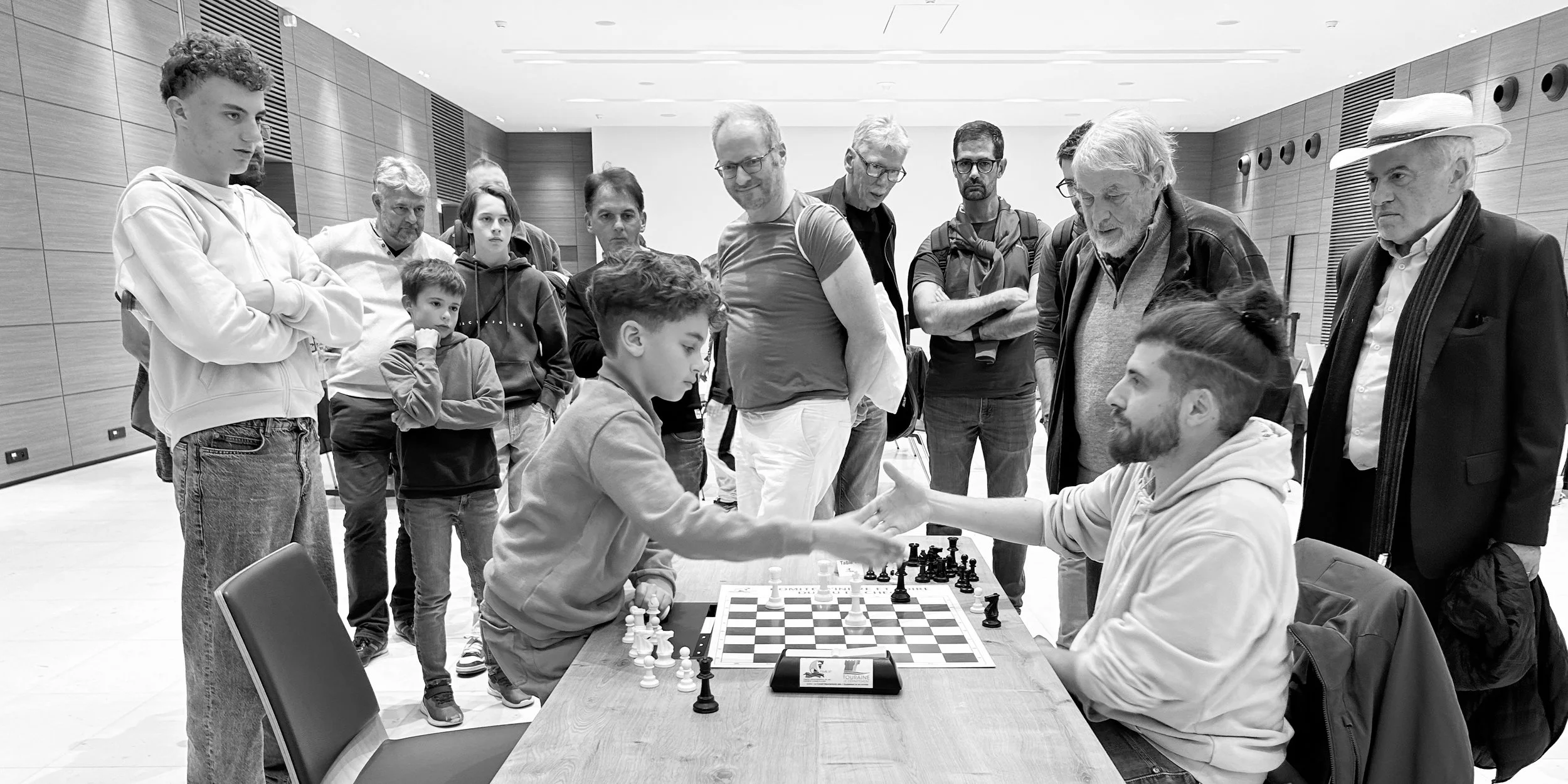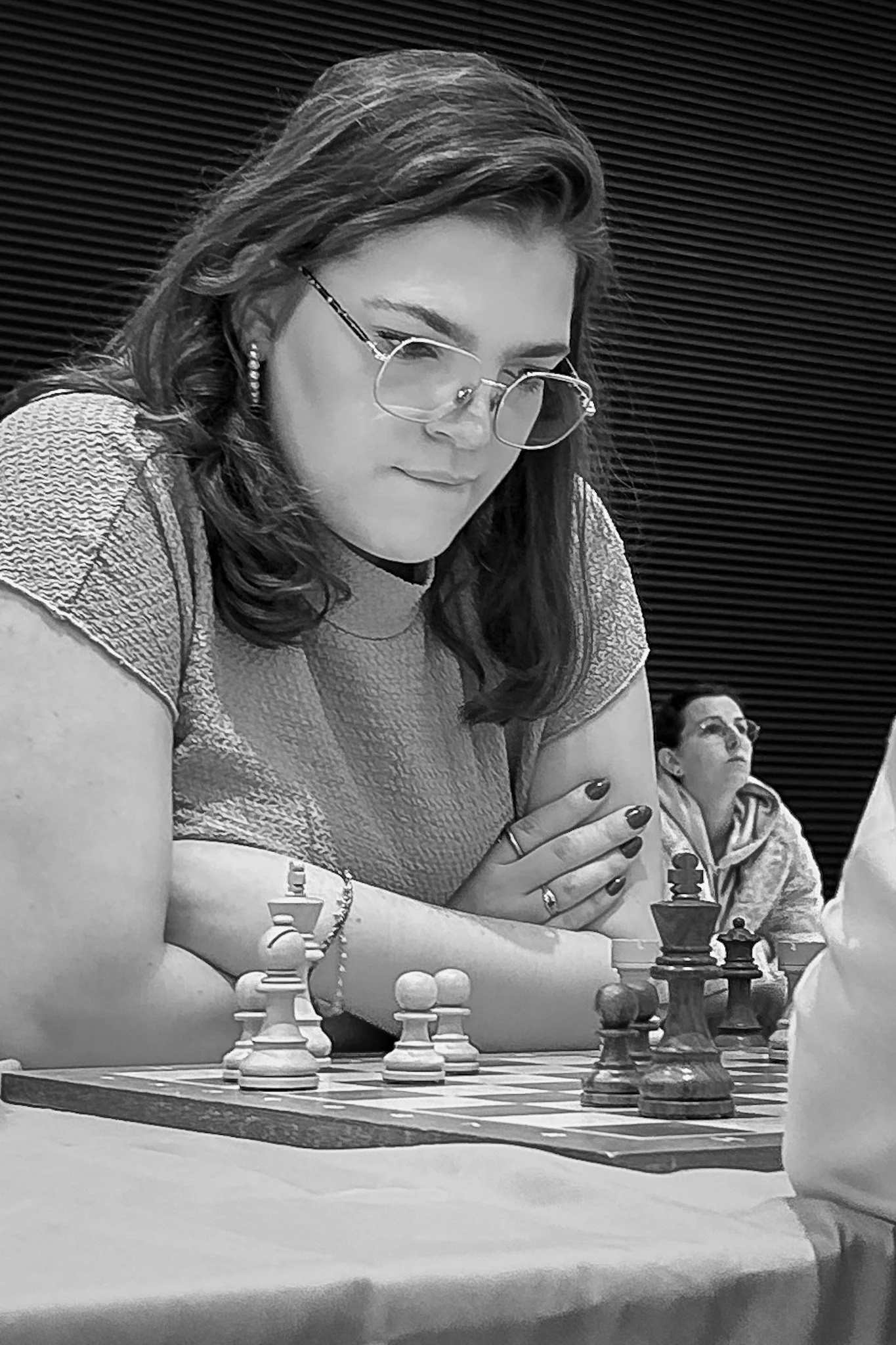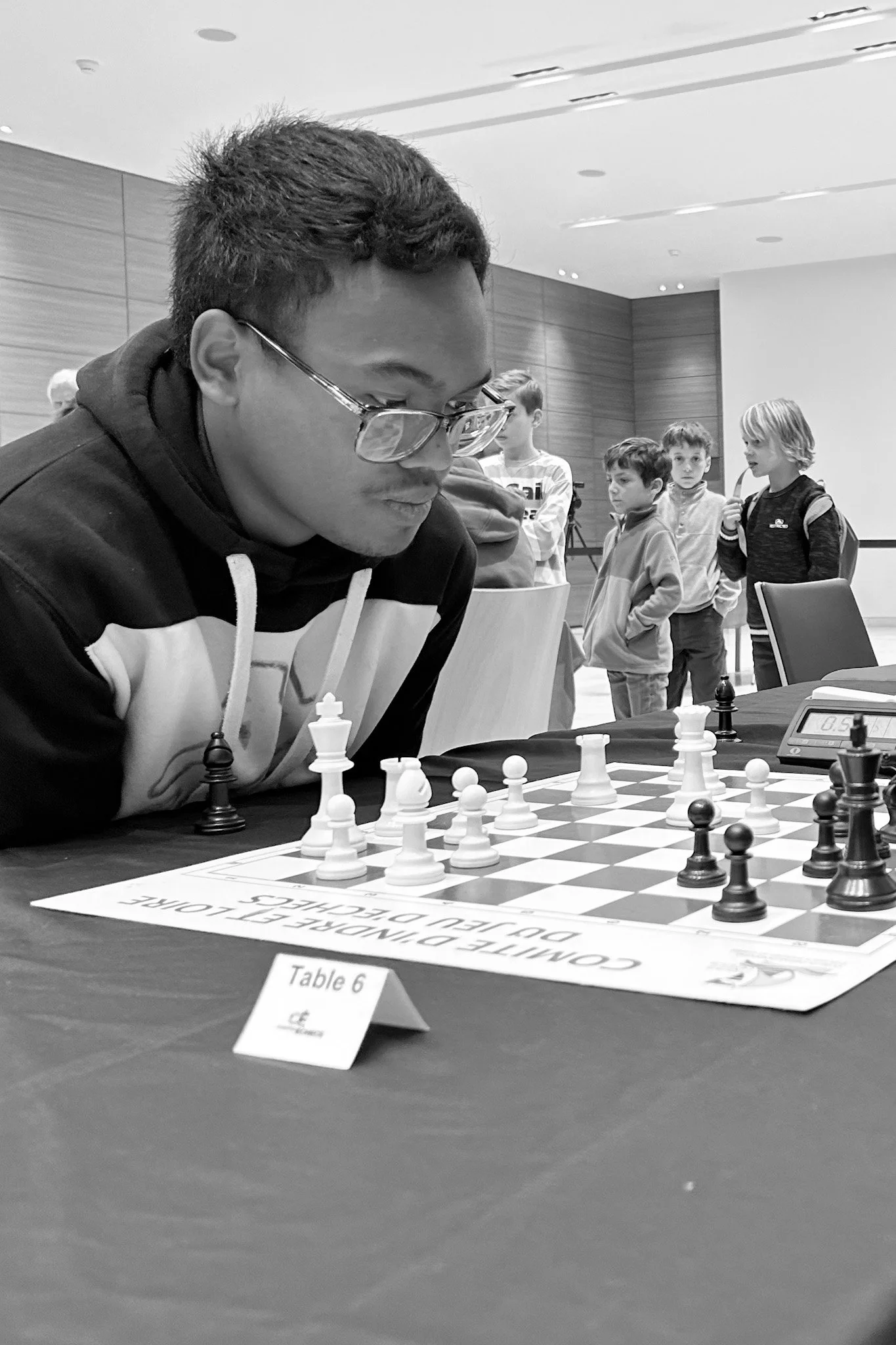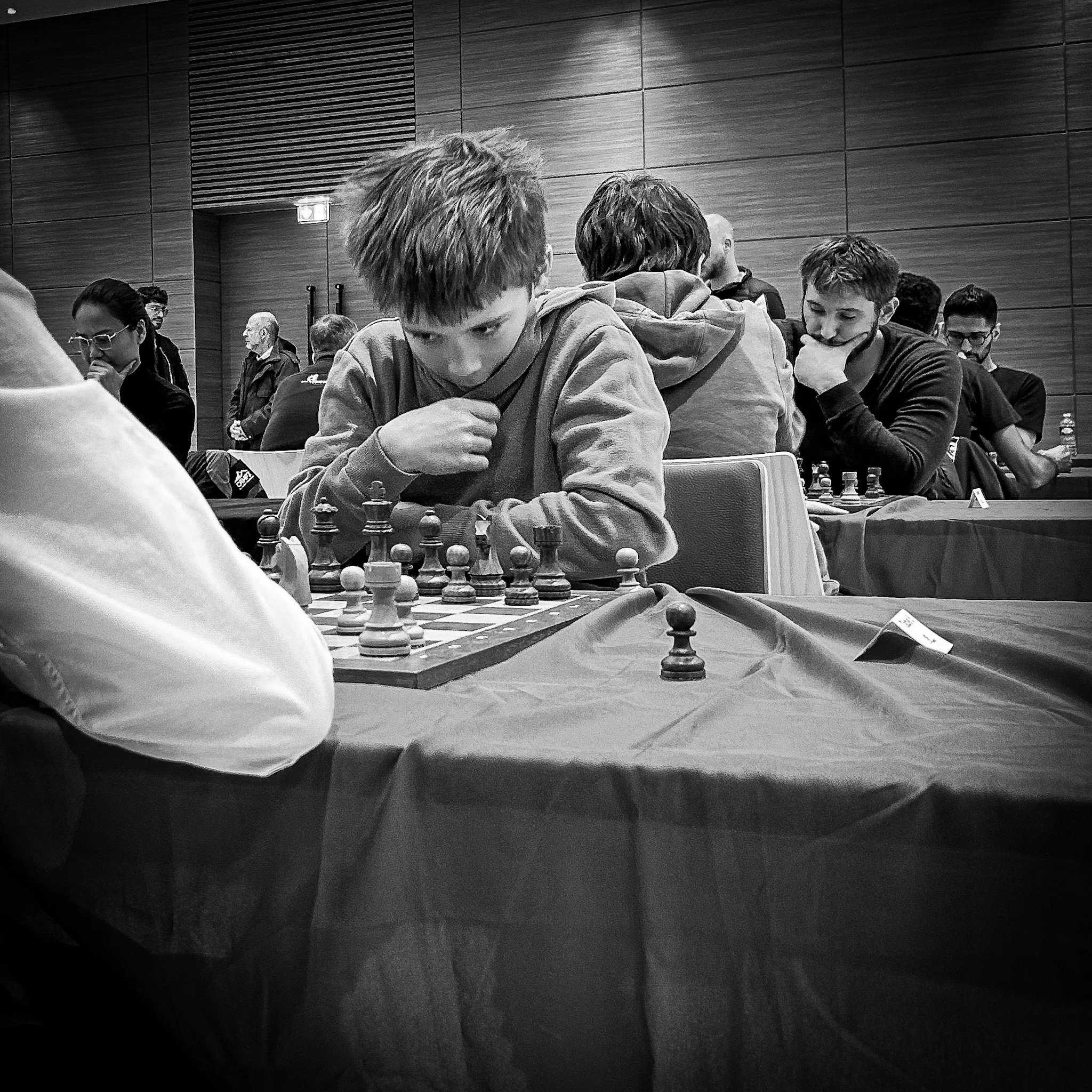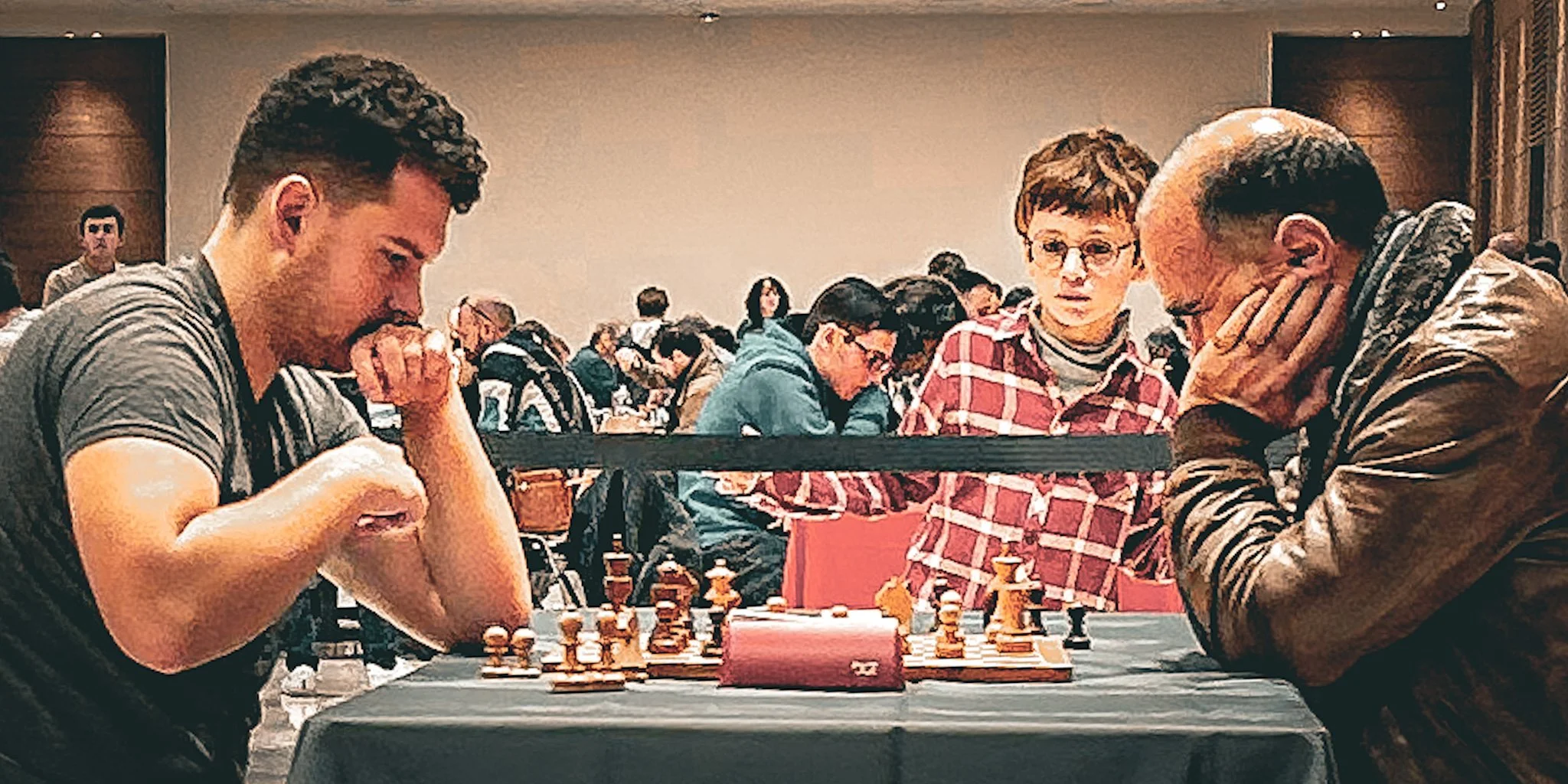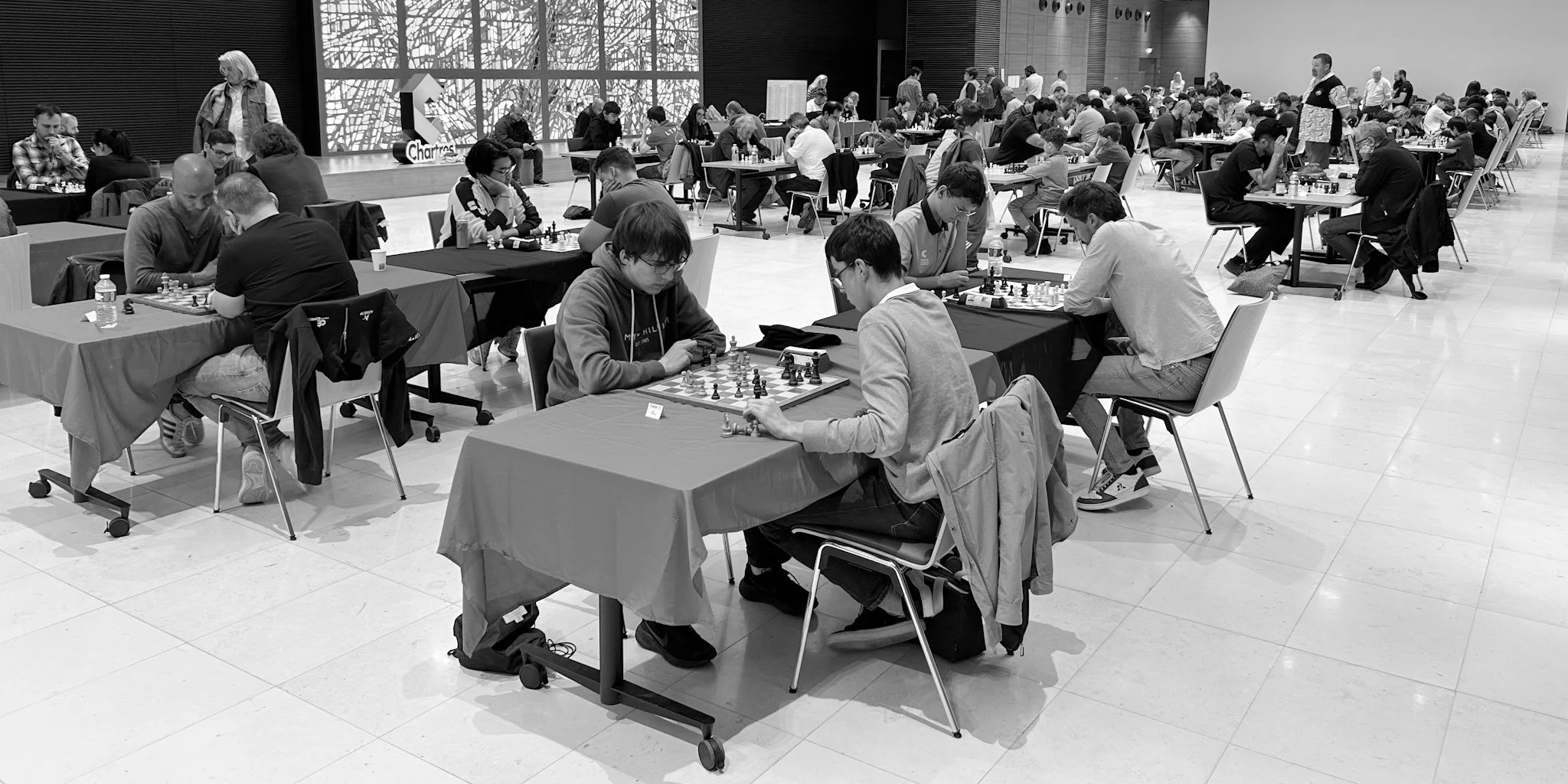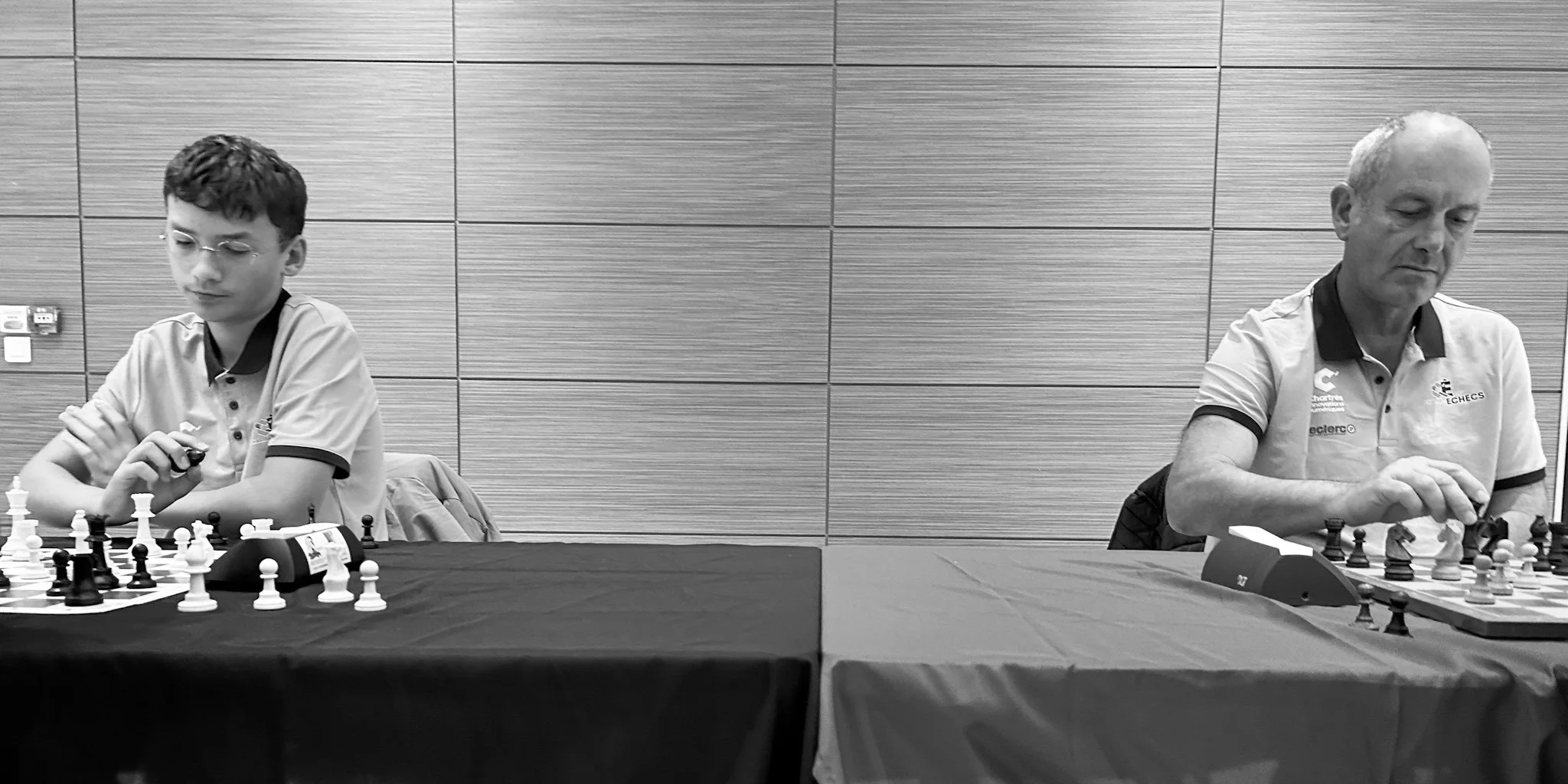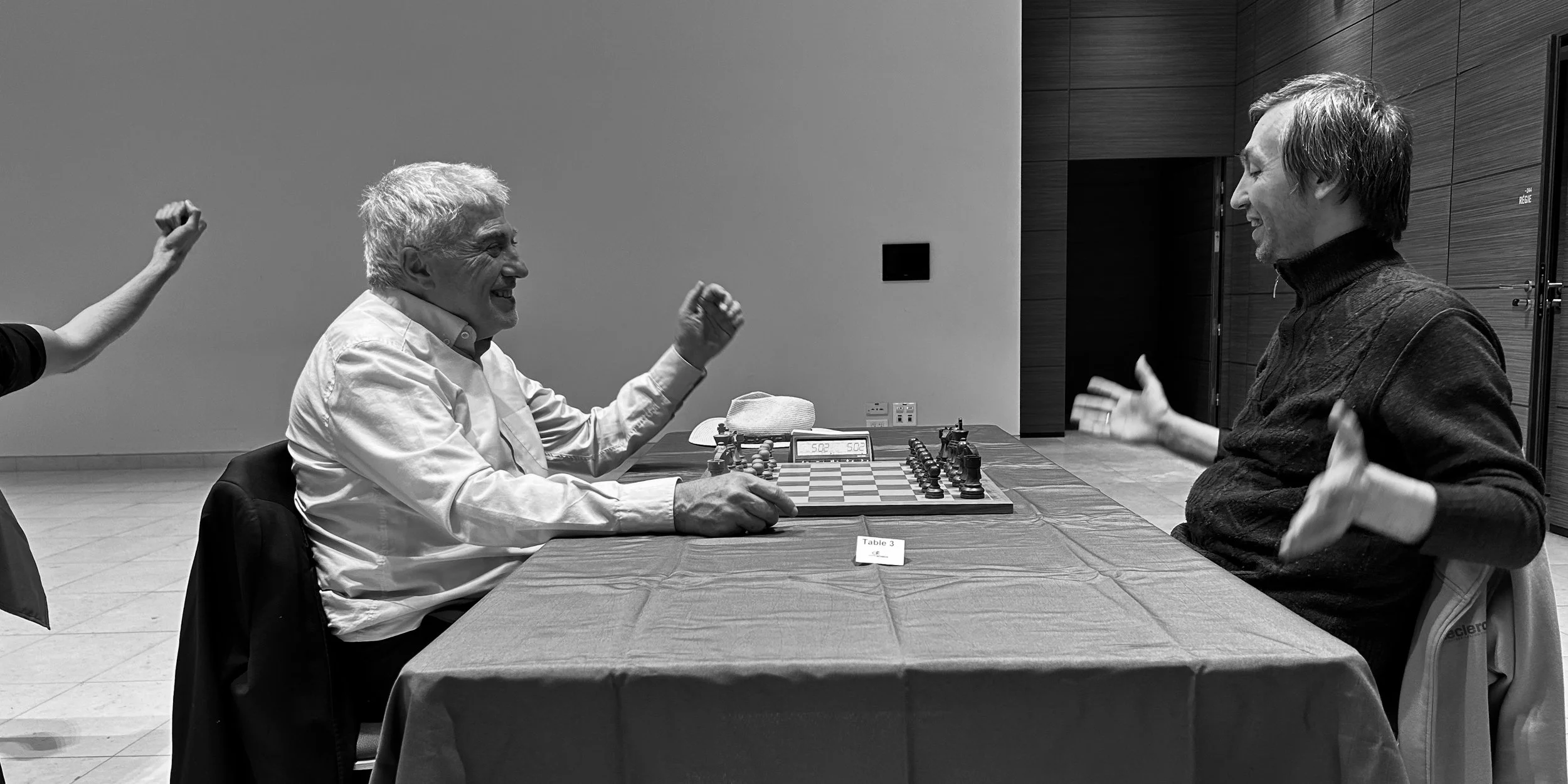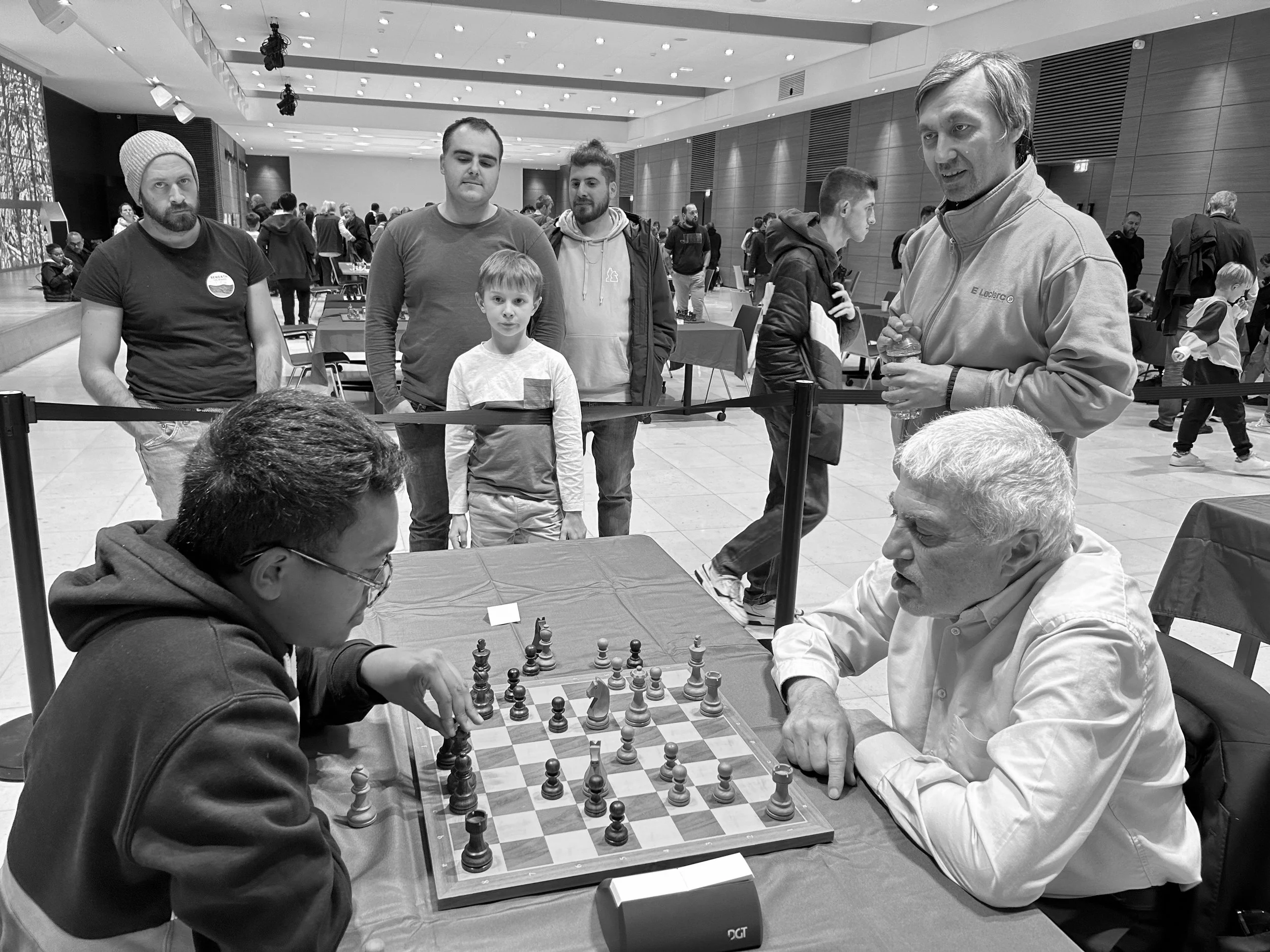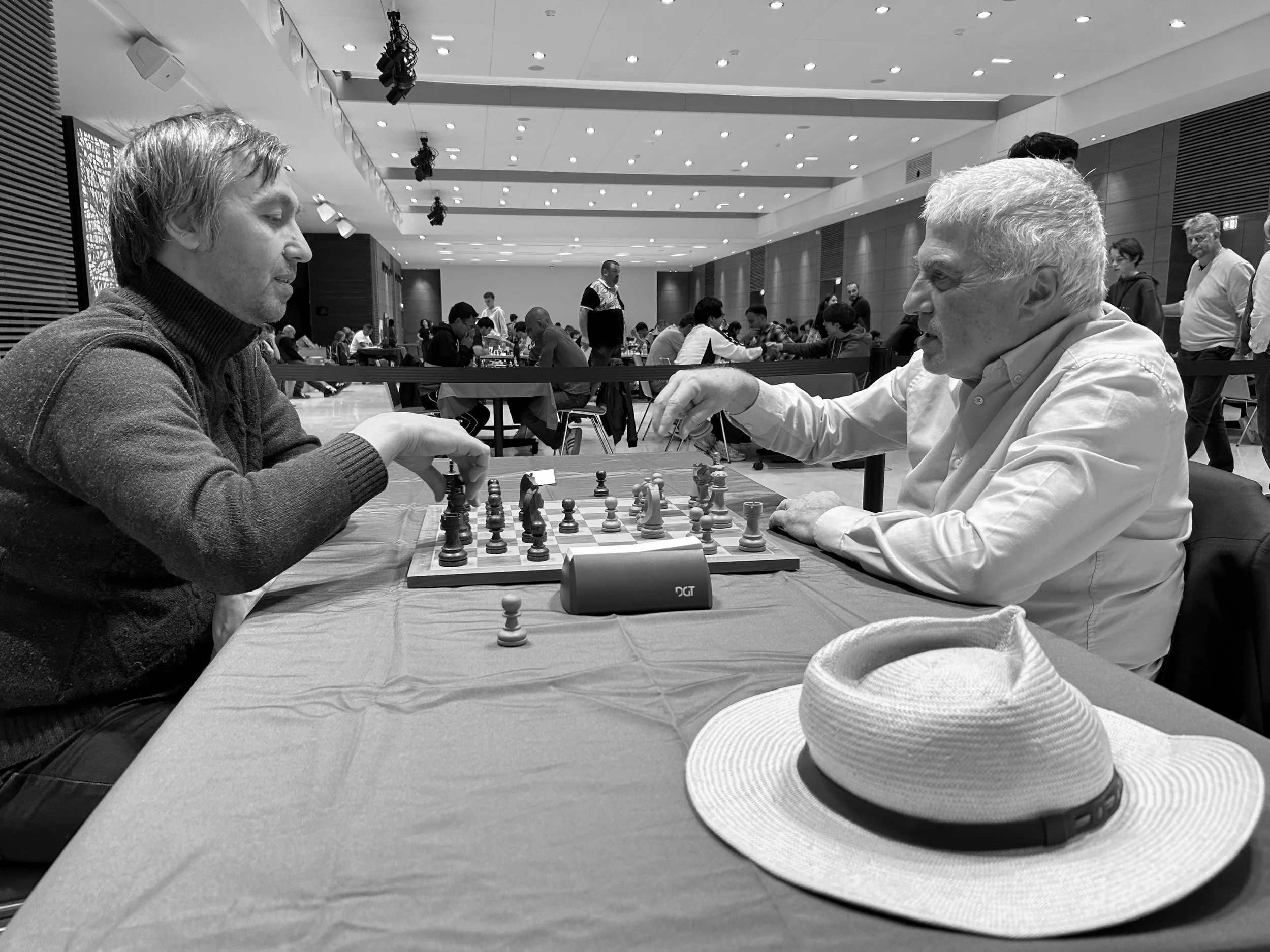In the language of chess
Why would people spend their day off playing chess?
There's no obligation to do so, what's more, there is nice weather outside… Why having left the office to go down to a large close room (sometimes without windows) and to devote all of your attention to the 64 black and white squares almost 8 hours in a row? What’s more, exposing oneself to the risk of feeling disappointed at the end of the day with the high probability to experience frustration and anxiety all way long…
What motivates thousands of people to repeat this routine again and again with some other kind of goal than “winning a medal”. This mystery has been puzzling me throughout my whole “professional chess life”.
I guess the explanation of the phenomenon is related to the answer to another question "What is chess for you?"
I imagine there are as many answers as there are chess enthusiasts.
The definition of meaning of chess goes far beyond accustomed “art, science and sport”.
The significance that chess exercises in someone's life is unique. For me chess has revealed itself first of all as a magic carpet - it allowed me to cross the barbed wire (it's not a metaphor, I mean a real physical wire) around my native city at a very young age and to see the world. The practice of the game has obviously enriched my inner universe.
But what's the point of discovering something, of getting experience if you can't communicate it?
Apart from perceiving chess as a magic carpet I see chess as a language, as a dialogue-fostering space.
What’s more, a space fostering a multidimensional dialogue:
intercultural, intergenerational;
with yourself, with your “partner in game”.
while playing, we can also listen to the talk of chess pieces who ask us to make certain improvements in the position... at this point arises
a dialogue between myself and the pieces
between my ego and my soul: chess pieces asking for care and incremental accumulation of little advantages in the position; myself who most of the time strives to create dynamic chaos on the board, lacking consideration of whether my position is ready for active actions... at this of the dialogue the debate between ego and soul comes into playl: ego wanting to win, to prove something, showing a very poor understanding of victory - a "1" in the scoresheet put next to one's name, whereas the soul perceives victory in a completely different light. Soul striving to prove nothing but to do one's bit in creating beauty in the world, one move at a time. How can harmony be possible without communication?
Once again a chess stage was set up yesterday in the City Hall of Chartres, more then hundred people come to play…
One of the main characteristics of the play is interaction between the protagonists, interaction the meaning of which is being revealed in the conversations, isn’t it? Some conversations happen to be silent, yet rich in an implicit expression.
Does the word “conversation” implies co-creation? Does it imply an act of creating verses? A text, dialog lines, verse by verse, move by move?
Do my descriptions sound far-fetched, as if I would try to present a mundane activity of playing chess from an artificially poetic perspective?
In fact, there's nothing new in my description. For example, a relative to chess game - the game of go - belongs in China and Japan to the so-called art of 'dialogue with hands' 谈话.
I learnt about this concept from a book, witnessed its application whilst studying in China and working there for a chess club (being occasionally involved in business projects aimed at receiving sponsorship for the club/team).
However, the most touching portrayal of this concept I encountered was in the book 'The Girl Who Played Go' (originally written in French by Chinese author Shan Sa).
- 'How can you say you are in love with him if you've never spoken to each other?' - the older sister asked.
- We've played many games of Go at the Square of a Thousand Winds. I've learnt what his soul is like.'
This isn't a direct quote - it's my retelling of a passage that stayed with me from the story. This book made me see some things differently, made me believe in the power of dialogue in which you participate fully with your heart, presence and attention. And yes, I read it before I first entered into conversation with my husband :)
Chess is a language, and language is meant for learning, for enabling understanding and establishing communication with both the outer and inner worlds.
Whilst chess as a sport is undergoing a crisis (this is just my impression - I may well be wrong… and I hope I am!), other facets of chess and the roles chess can play in a person's life might be experiencing a renaissance.
I see events like yesterday's in this light, where victory means developing different types of conversation (intergenerational and intercultural exchanges of experience) and co-creation of beauty - including the ‘nice memories’ kind of beauty.

